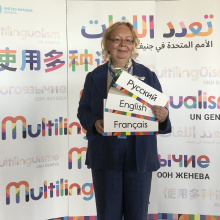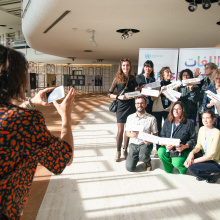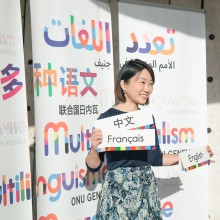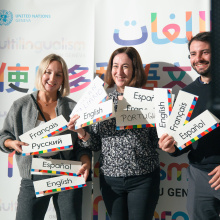
Breadcrumb
What languages do you speak?
Visit our photobooth to show your language abilities
The photobooth will be set up between 17 and 28 February during working hours.
Directions: enter through door 40 (E-Building, 2nd floor). Move to the first floor towards the Serpent Bar. The photobooth is located close to the Cagi cultural kiosk.
Everyone working at or visiting the United Nations Office at Geneva has the opportunity to take a picture showcasing the languages they speak.
Take your colleagues for a group picture and demonstrate the linguistic diversity in your team!
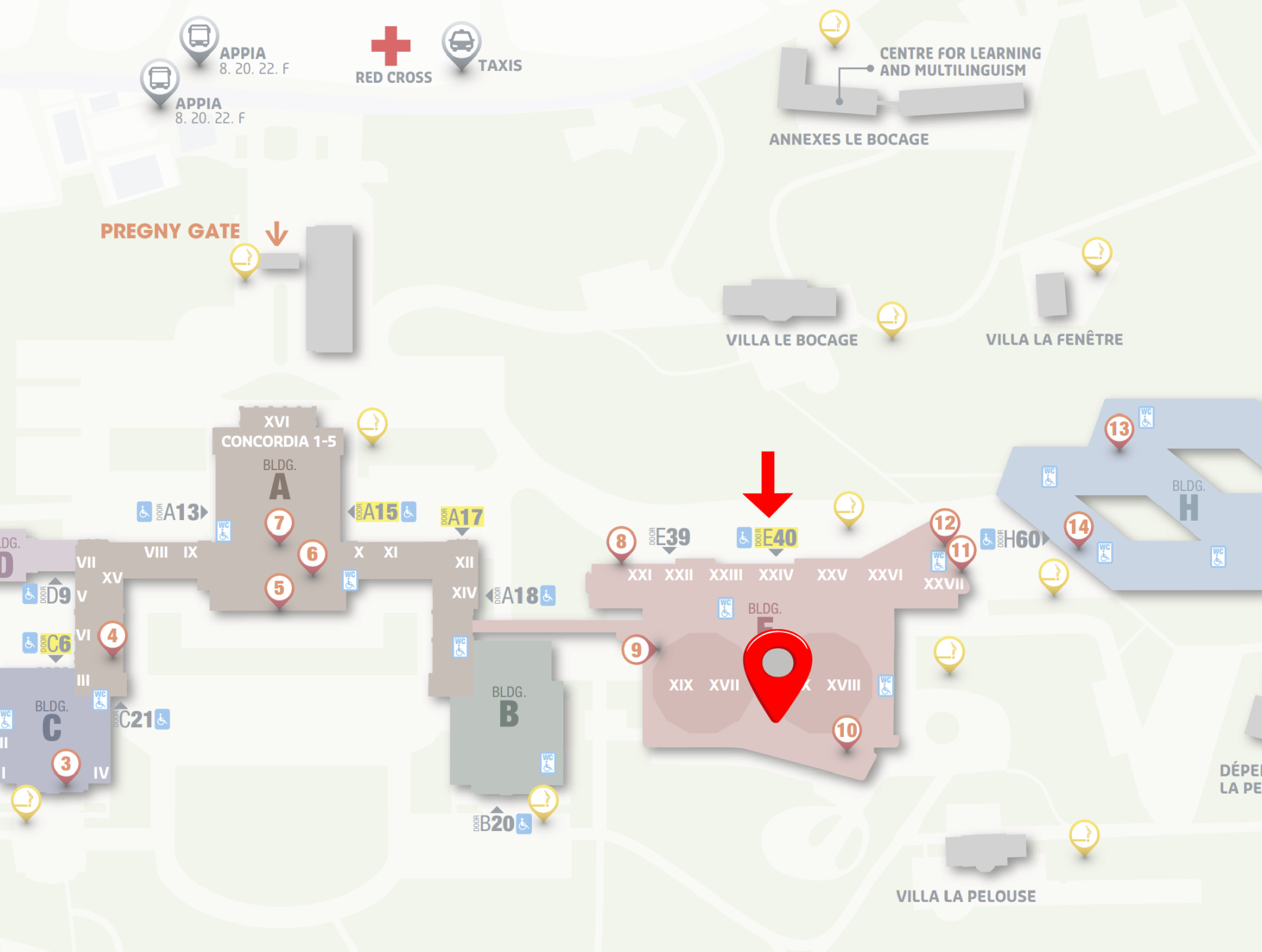
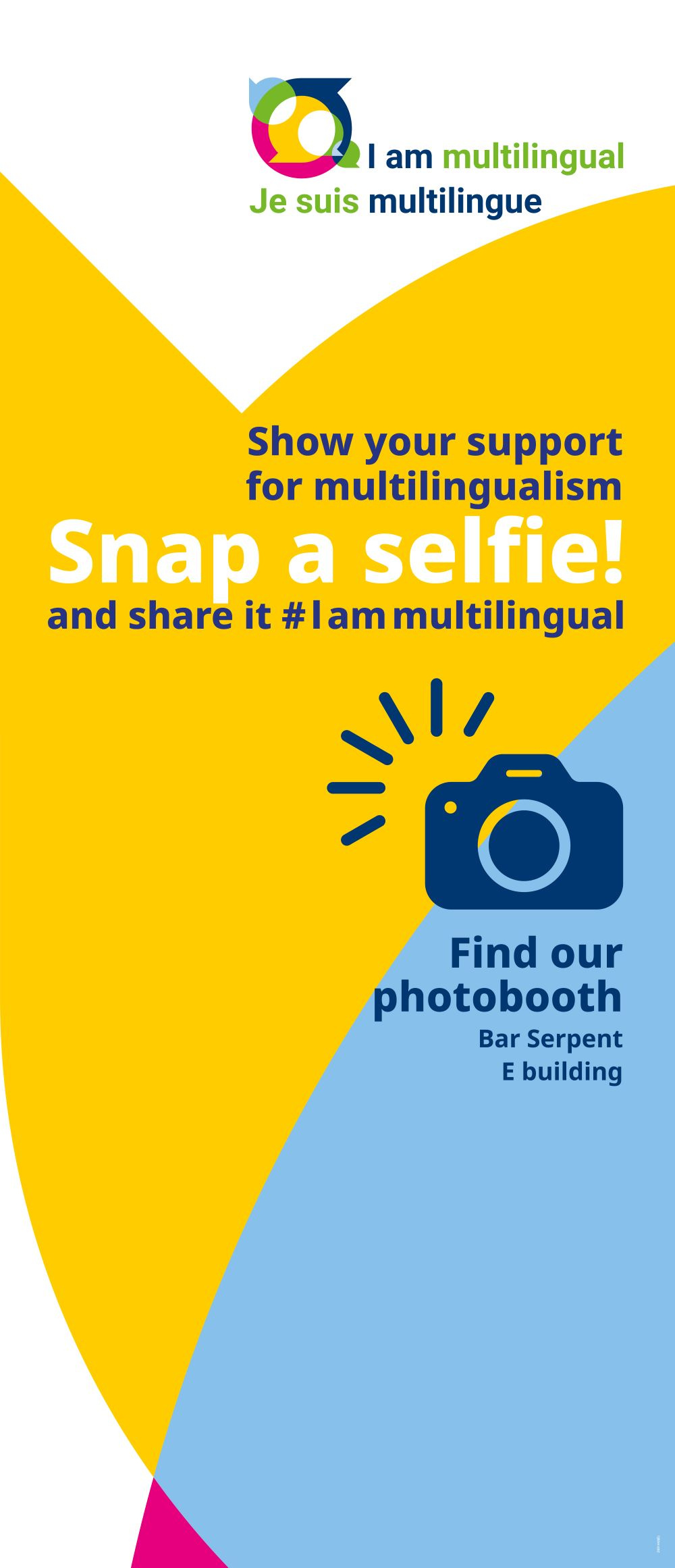
Multilingualism: high on the agenda at the United Nations Office at Geneva
The United Nations Office at Geneva strives for equal representation of all UN official languages at official meetings, in documentation and other communications. Both working languages, English and French, are used in team meetings and discussions on a working level without discrimination.
Our staff stems from more than 100 different countries and speaks nearly 70 different mother languages. Most staff members are multilingual, and the UN offers language classes in all UN official languages to further improve linguistic abilities among staff.
10 Facts about languages
- According to UNESCO estimates, the world’s people communicate in 8,324 different languages.
- Only about 1,400 of these languages are legally recognized.
- Around 1,500 languages are at immediate risk of extinction, 50% of today’s spoken languages will be seriously endangered, or will have disappeared by the year 2100.
- Approximately 70 million deaf people live in all parts of the world. They use around 300 different sign languages.
- The UN General Assembly proclaimed the years 2022-2032 as Indigenous Language Decade to draw attention to the loss of indigenous languages and promote their preservation.
- The first language listed in UNESCO’s World Atlas of Languages is called ‘Are’are, spoken on the Solomon Islands, the last entry is Zyphe, a language used in parts of India and Myanmar. Both are classified as endangered languages.
- The Universal Declaration of Human Rights is the world’s most translated document, and it is available in more than 500 languages.
- The UN has a Coordinator for Multilingualism, tasked to promote multilingualism in the UN Secretariat and first point of contact for Member States raising any concerns on this topic. This role is currently held by Movses Abelian, who also heads the Department for General Assembly and Conference Management.
- Approximately 100 interpreters work at UN Geneva, providing simultaneous interpretation to around 2,700 meetings a year, allowing more people to follow and understand the discussions happening at the UN.
- Translators at UN Geneva translate around 80 million words per year – official documents that need to be understood and implemented by all Member States.


